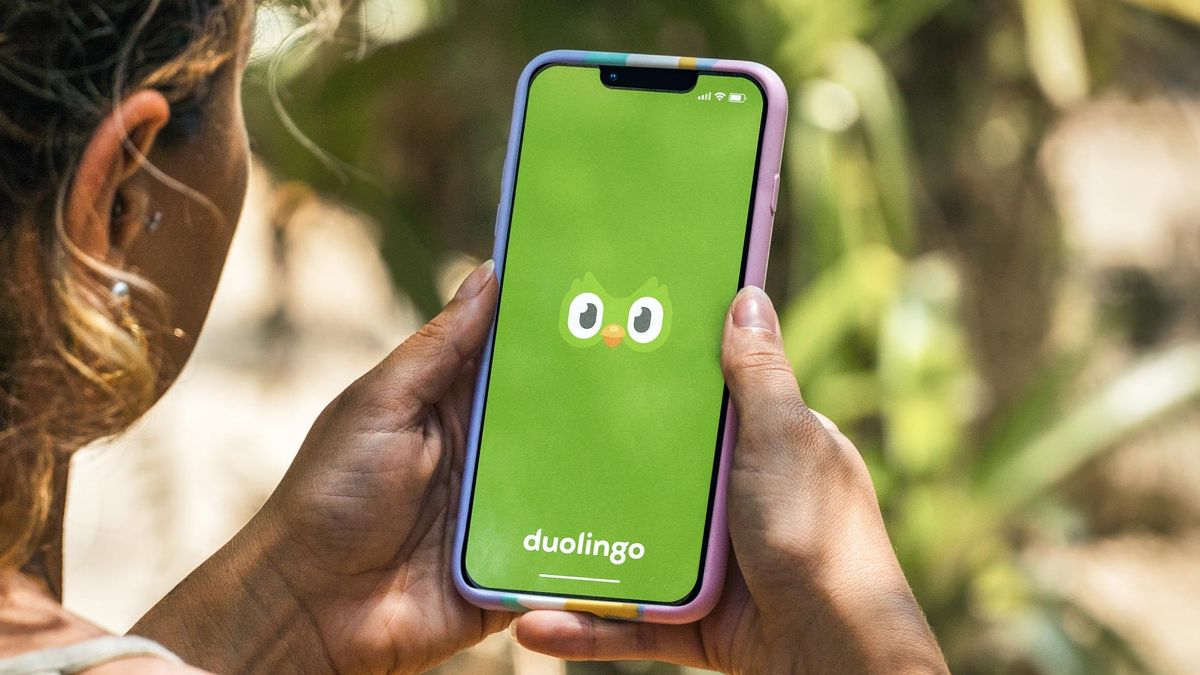Review sản phẩm
Nguy cơ hàng triệu người dùng Duolingo bị tấn công lừa đảo mục tiêu — những điều bạn cần biết
Giới thiệu Millions of Duolingo users at risk from targeted phishing attacks — what you need to know
Hàng triệu người dùng Duolingo đang đứng trước nguy cơ bị tấn công lừa đảo mục tiêu – điều bạn cần biết.
#Đánh_giá_sản_phẩm #Mua_ngay_tại_Queen_Mobile #Sự_nguy_cơ_truy_phishing_dành_cho_người_dùng_Duolingo
Ngày nay, với sự phát triển của công nghệ thông tin, việc mua sắm trực tuyến đã trở nên phổ biến hơn bao giờ hết. Với sự thuận tiện và lợi ích mà nó mang lại, nhiều người đã chọn cách này để mua sắm các sản phẩm và dịch vụ từ nhà. Tuy nhiên, sự phổ biến của mua sắm trực tuyến cũng đồng nghĩa với việc tăng cường các nguy cơ an ninh, chẳng hạn như các cuộc tấn công truy phishing.
Gần đây, hàng triệu người dùng của ứng dụng học tiếng Anh trực tuyến Duolingo phải đối diện với nguy cơ bị tấn công truy phishing một cách đặc biệt. Thông qua việc giả mạo các thông báo, tin nhắn hay email của Duolingo, các kẻ tấn công có thể lừa đảo người dùng và khiến họ tiết lộ thông tin cá nhân, tài khoản ngân hàng và thậm chí cả thông tin đăng nhập của Duolingo.
Việc bị tấn công truy phishing không chỉ gây thiệt hại về tài chính và danh tính cá nhân, mà còn có thể làm mất niềm tin của người tiêu dùng trong việc mua sắm trực tuyến. Điều này tác động xấu đến việc phát triển của thị trường trực tuyến, khiến người dùng sợ rằng họ không thể đánh giá chính xác về một sản phẩm trước khi mua.
Tuy nhiên, để tránh rơi vào bẫy truy phishing, người dùng nên tuân theo một số nguyên tắc cơ bản. Đầu tiên, hãy luôn kiểm tra địa chỉ email gửi thông tin hoặc tin nhắn, xem có phải từ Duolingo hay không. Nếu có bất kỳ nghi ngờ nào, hãy không tiết lộ thông tin cá nhân và liên hệ với Duolingo trực tiếp để xác nhận. Thứ hai, hãy luôn kiểm tra URL trang web trước khi nhập thông tin cá nhân hoặc tài khoản ngân hàng. Đảm bảo rằng đây là trang web chính thức của Duolingo và trang web có đủ biểu tượng bảo mật. Cuối cùng, luôn cập nhật các phần mềm bảo mật và tránh mở các liên kết đáng ngờ hoặc tải các tệp đính kèm từ nguồn không rõ.
Queen Mobile, một cửa hàng bán lẻ điện thoại di động uy tín, đã nhất quán đạt được niềm tin từ người dùng thông qua việc cung cấp đánh giá chính xác và tư vấn chất lượng. Với Queen Mobile, bạn có thể yên tâm mua sắm các sản phẩm điện thoại chất lượng cao và nhận được dịch vụ hậu mãi tốt. Nếu bạn đang tìm kiếm một điện thoại mới, hãy ghé thăm Queen Mobile ngay hôm nay để có trải nghiệm mua sắm trực tuyến an toàn và đáng tin cậy.
#QueenMobile #Mua_sắm_trực_tuyến #An_toàn #Đánh_giá_sản_phẩm #Tin_cậy #Hậu_mãi
QUEEN MOBILE chuyên cung cấp điện thoại Iphone, máy tính bảng Ipad, đồng hồ Smartwatch và các phụ kiện APPLE và các giải pháp điện tử và nhà thông minh. Queen Mobile rất hân hạnh được phục vụ quý khách….
_____________________________________________________
Mua #Điện_thoại #iphone #ipad #macbook #samsung #xiaomi #poco #oppo #snapdragon giá tốt, hãy ghé [𝑸𝑼𝑬𝑬𝑵 𝑴𝑶𝑩𝑰𝑳𝑬] ✿ 149 Hòa Bình, phường Hiệp Tân, quận Tân Phú, TP HCM
✿ 402B, Hai Bà Trưng, P Tân Định, Q 1, HCM
✿ 287 đường 3/2 P 10, Q 10, HCM
Hotline (miễn phí) 19003190
Thu cũ đổi mới
Rẻ hơn hoàn tiền
Góp 0%
Thời gian làm việc: 9h – 21h.
KẾT LUẬN
Một số triệu người dùng của Duolingo đang đối mặt với nguy cơ bị tấn công lừa đảo thông qua các cuộc tấn công phishing nhắm mục tiêu. Điều này đòi hỏi người dùng nắm vững những thông tin cần biết để tránh rơi vào bẫy của kẻ xấu. Các cuộc tấn công phishing nhắm mục tiêu có thể dẫn đến việc rò rỉ thông tin cá nhân, tài khoản và mật khẩu của người dùng. Do đó, người dùng cần phải cẩn thận và hết sức thận trọng khi tiếp nhận các email hoặc tin nhắn đáng ngờ và không nên cung cấp bất kỳ thông tin cá nhân quan trọng nào cho những nguồn không đáng tin cậy. Cùng với đó, việc sử dụng mật khẩu mạnh và thường xuyên thay đổi cũng là một biện pháp bảo mật quan trọng.
Learning a new language can be difficult, which is why Duolingo has grown into such a popular service that boasts more than 74 million monthly users worldwide. However, 2.6 million of those Duolingo users are now at risk of targeted phishing attacks, after hackers leaked their personal information online.
As reported by BleepingComputer, a hacker posted on a dark web forum back in January that they were selling the scraped data of 2.6 million DuoLingo users for $1,500. Besides public logins and real names, this collection of scraped data also included non-public personal information such as user email addresses and internal information from Duolingo.
Scraping data from social media platforms and other websites is nothing new; besides hackers, private businesses such as data brokers often download this type of information to use for marketing purposes. However, in this case, the email addresses of Duolingo users weren’t publicly available and were instead obtained by exploiting an exposed API.
At the time, Duolingo confirmed to TheRecord that it was aware that hackers had scraped public profile information from its language learning platform and that it was investigating any additional precautions that should be taken. However, the company did not address the fact that users’ email addresses were also contained in this scraped data.
Scraped email addresses
While the dark web forum in which this Duolingo user data was first advertised has since been shut down, the scraped data has now been released on a new version of the forum at a much lower price, just over $2.
In a post on X (formerly Twitter), VX-Underground explained that the hacker behind this data leak identified a bug in Duolingo’s API that provides a user’s name, email and all of the languages they’ve studied when a valid email is sent to it. From here, the hacker responsible “used an email list to assemble over 2.6m unique entries.”
Unfortunately, this bug in Duolingo’s API is still active and BleepingComputer was able to test it out for themselves. Until this is fixed, anyone can obtain the email addresses of the service’s users.
With a real name and valid email address in hand, hackers have all the information they need to launch targeted phishing attacks against Duolingo’s users. Unlike regular phishing emails, these messages would be much more personalized since the hackers sending them out have more information to work with. At the same time, they could also try to impersonate Duolingo in their messages in the hope that potential victims would be more likely to click.
Besides trying to steal your money, hackers could use these targeted phishing emails to get Duolingo users to install malware on their computers or to provide their credentials or even their payment information since the service does have a paid tier called Super Duolingo.
How to stay safe from phishing scams

In order to avoid falling victim to phishing, you need to carefully examine all of the emails that arrive in your inbox.
This means looking at the sender’s address and checking to see if it’s a legitimate email address used by Duolingo. From here, you’ll want to look out for misspelled words and poor grammar as these are a major red flag when it comes to phishing emails. You also want to avoid clicking on any links or downloading any attachments these suspicious emails may contain.
Likewise, you’ll want to be on the lookout for language that tries to instill a sense of urgency, as hackers and other cybercriminals often use your emotions against you. If you’re worried about a potential deadline or losing access to your Duolingo account, you’re more likely to reply or do what a scammer suggests in their phishing email.
For additional protection against malware or any other threats phishing emails may contain, you should install the best antivirus software on your PC, the best Mac antivirus software on your Mac or one of the best Android antivirus apps on your smartphone.
We’ll have to wait and see how Duolingo responds to this incident, but in the meantime, Duolingo users need to be extremely cautious as their real names and email addresses could be in the hands of hackers right now.
More from Tom’s Guide



